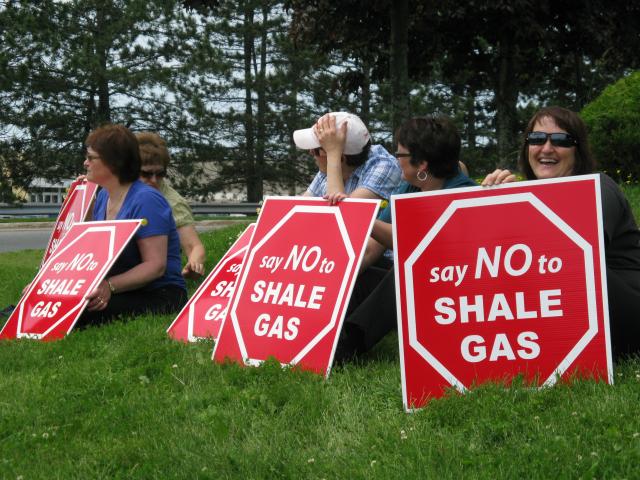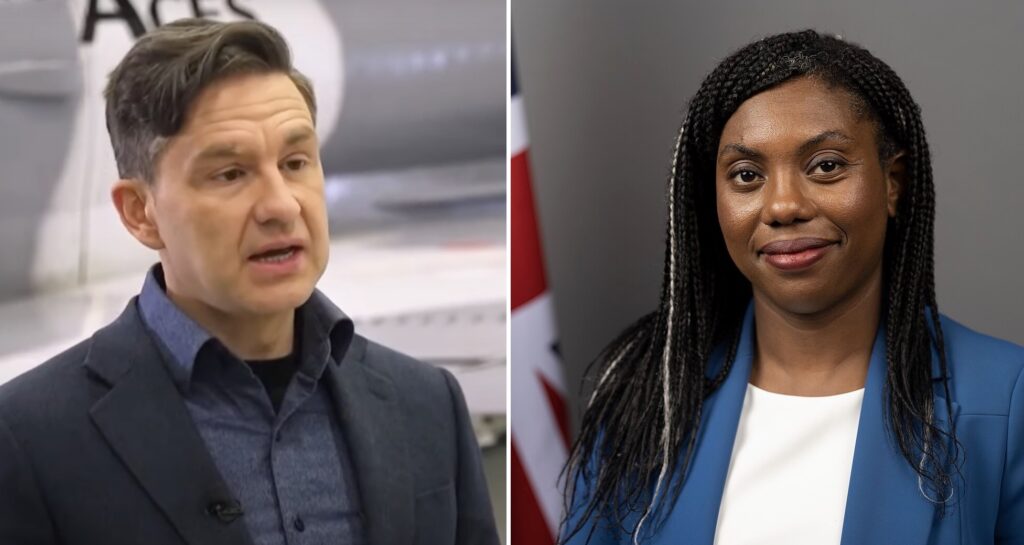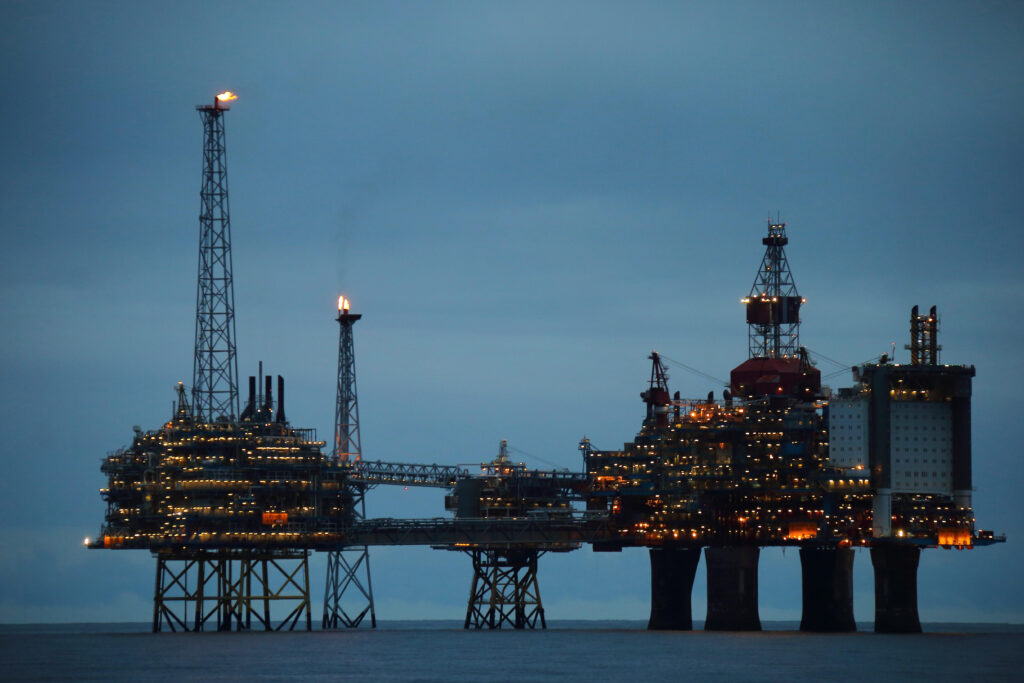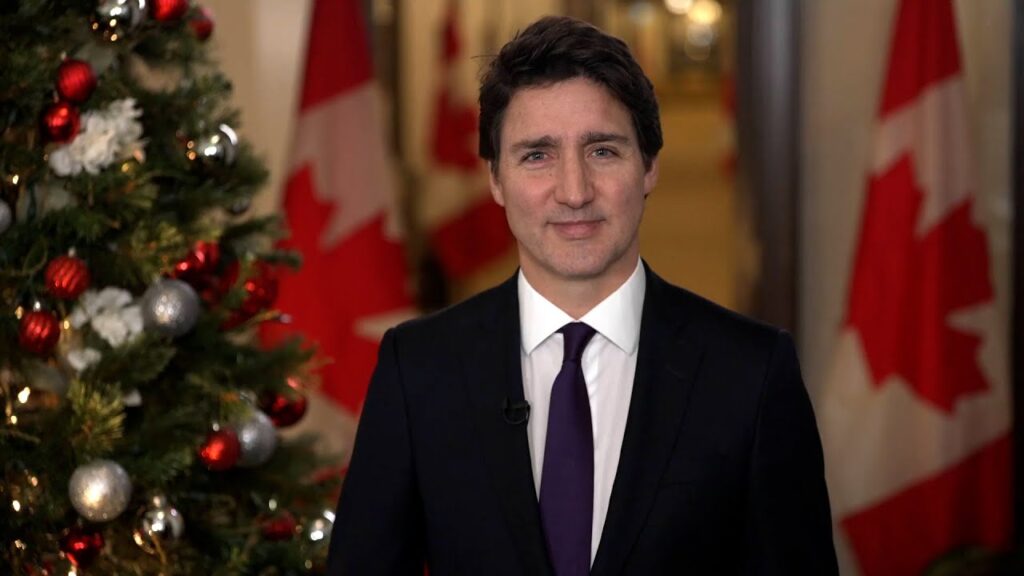In ever greater numbers, New Brunswickers are speaking out against hydraulic fracturing (fracking) and the exploitation of the densely packed unconventional gas sitting below ground. Until now, opposition to drilling has been disparate with some 30 civic groups, many communities and individuals speaking out, but on their own. Now, it seems that the opposition is unifying under a common voice in order to send a firm message that “No Means NO” [pdf] when it comes to fracking in the province.
The August 1st Fracking Day march and protest in Fredericton, co-organized by 16 environmental and community groups, was a huge success drawing a crowd of around 1,500 people as well as representatives from the opposition political parties, all on a provincial holiday. The many groups opposing fracking and unconventional gas are hoping for another breakthrough as they have been invited to the community of Taymouth by the Taymouth Community Association for the second formal meeting to form a common voice and to build short and long term province-wide strategy to stop drilling.
Speaking out against fracking with a unified voice is important considering residents and communities’ deepening concerns over the health and environmental impacts (like carbon emissions and freshwater contamination), as well as fears over property damage. According to the Conservation Council of New Brunswick (CCNB Action), more than 1/7 of provincial land has been allocated for potential drilling sites across 100 communities. Drillers are also holding titles which permit seismic testing in Fredericton itself.
Many New Brunswickers are wondering why companies think drilling is a done deal and why there has been so much government support without adequate public debate on whether or not fracking is such a good thing.
It is telling when you consider that the government visited Arkansas to learn how that state manages gas, and that a key player in the province is Southwestern Energy Co. (a.k.a. SWN Resources in Canada), a company facing numerous lawsuits in Arkansas and Pennsylvania over the damages caused by its drilling.
In an effort to temper public opposition, the government hosted a Provincial Forum on Shale Gas in June, but the event was a closed door meeting largely attended by government and industry, with few environmental and community groups invited.
Rallying outside of the forum were some 300 people. Vicki Oland of Durham Bridge protested outside and clarified her anxiety about the drilling process:
“I’m a citizen concerned about fracking, and I am also concerned about the seismic testing they are going to do for fracking.”
“They haven’t looked into the human health aspects of which there are many and yet they say they’re going to allow fracking.”
She also said that rather than trying to reinvent the wheel and pitch fracking as a safe process, the government should be talking to those jurisdictions that have banned the drilling method.
Jim Emberger of Taymouth also attended, saying that:
“You’re going to get half or two-thirds of central New Brunswick that basically from the sky will look like an industrial park.”
“This is such a short-sighted adventure.”
Emberger spoke of the industry tactic of dividing residents and communities: “Industry always does this to try and split the community.”
NPR’s ‘This American Life’ [podcast] discussed the gas industry’s divisive tactics in the Township of Mount Pleasant, Pennsylvania, where Range Resources has leased 95% of the township’s lands, is influencing policy, and is pitting residents against one another into groups of haves and have nots.
The government’s meager engagement is secondary to the campaign to frame gas drilling as safe, which is dividing opposition groups, residents and communities.
Coinciding with the Shale Gas Forum, Natural Gas Steering Committee Chair and Natural Resources Minister Bruce Northrup announced regulatory reforms to the gas industry:
● conduct baseline testing on all potable water wells within a minimum distance of 200 metres of seismic testing and 500 metres of oil or gas drilling before operations can begin. These will be minimum requirements and may be increased depending upon the situation;
● provide full disclosure of all proposed, and actual, contents of all fluids and chemicals used in the hydraulic fracturing (fracing) process; and
● establish a security bond to protect property owners from industrial accidents, including the loss of/or contamination of drinking water, that places the burden of proof on industry.
A plan to allow gas rich communities to receive royalties from drilling is also proposed.
After the June Forum and Northrup’s announcement, one group formerly opposed to fracking suddenly reversed its call for a moratorium. Bethany Thorne-Dykstra, the President for the Citizens for Responsible Resource Development, held a joint news conference with Northrup stating: “We are willing to meet the government half-way by dropping our request for a moratorium.” She also took a shot at anti-fracking groups like the CCNB Action to emphasize her group’s change in direction.
Dividing and conquering may be backfiring however, since the Citizens for Responsible Resource Development reversal is encouraging calls for groups, residents and communities to join forces.
Access the “No Means No” declaration here.
Subscribe to our newsletter
Stay up to date with DeSmog news and alerts







